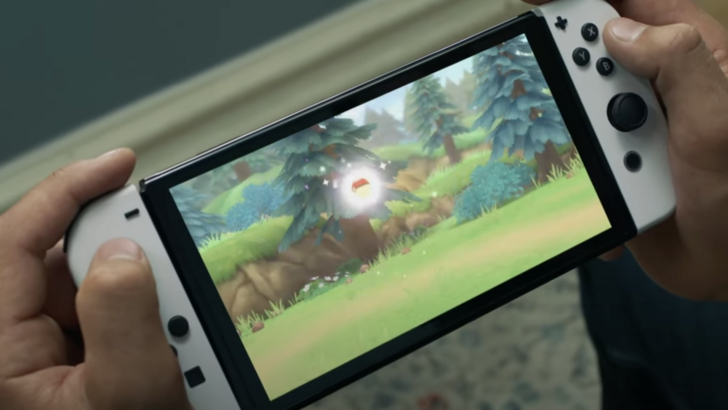Microsoft Hikes Xbox Prices; Analysts Predict Similar Moves by PlayStation
In recent weeks, the gaming industry has seen a wave of price increases across major console manufacturers. Microsoft initiated the trend by raising the prices of all its Xbox Series consoles and many accessories worldwide, alongside announcing that some new games will cost $80 during the holiday season. This move came shortly after PlayStation adjusted its console prices in select regions, and Nintendo increased the prices of its Switch 2 accessories and unveiled its first $80 game. These adjustments have been largely attributed to tariff-induced cost pressures.
The ripple effect of these price hikes has been significant, prompting a closer look at the underlying reasons and the potential impact on the gaming industry. To understand the situation, I consulted with several industry analysts who provided insights into the causes and future implications of these changes.
The primary reason for these price increases, as per the analysts, is the impact of tariffs. Dr. Serkan Toto of Kantan Games, Inc. highlighted that Microsoft's consoles, manufactured in Asia, are directly affected by these tariffs. He praised Microsoft's strategic timing, leveraging the current economic climate to announce a global price increase simultaneously, thus minimizing potential backlash. Joost van Dreunen from NYU Stern and author of the SuperJoost Playlist newsletter echoed this sentiment, describing Microsoft's approach as a strategic recalibration to consolidate consumer reactions within a single news cycle.
Other analysts, such as Manu Rosier from Newzoo and Rhys Elliott from Alinea Analytics, emphasized the importance of tariffs in driving these price adjustments. Rosier noted that the timing of the increase allowed Xbox's partners and consumers to adjust expectations before the holiday season, while Elliott explained that the price hikes in games would help offset the increased hardware manufacturing costs due to tariffs.
Beyond tariffs, Piers Harding-Rolls from Ampere Analytics pointed out additional factors contributing to the price increases, such as persistent inflation and rising supply chain costs. He also noted that Microsoft's pricing adjustments were influenced by the launch prices of competitors like the Switch 2 and Sony's recent price hikes.
The question now is whether Sony will follow suit with its own price increases. Most analysts believe this is likely, with Rhys Elliott confidently predicting that PlayStation will raise software prices as well. He suggested that the market is ready for $80 games, with many gamers willing to pay higher prices for early access. Daniel Ahmad from Niko Partners mentioned that while Sony has already raised prices in some regions, the U.S. might be next, given its importance in the console market.
Despite these price increases, the analysts do not foresee a significant decline in overall gaming spending. Microsoft's shift towards a service-oriented platform, as evidenced by its 'This Is An Xbox' campaign, suggests a strategic pivot away from hardware sales. Harding-Rolls noted that while Xbox hardware sales might continue to decline, the launch of GTA 6 in Q2 2026 could provide a boost.
Elliott and Rosier both indicated that while spending might shift, it is unlikely to decrease significantly. Consumers may become more selective, favoring subscriptions, discounted bundles, and live-service games over full-priced titles. Harding-Rolls highlighted that the U.S. market might feel the impact more due to localized tariffs, but growth is expected in other regions like Asia and MENA.
In conclusion, while the gaming industry is navigating through these price adjustments, the consensus among analysts is that the sector will remain robust. However, the uncertainty surrounding the global economy and tech market means that the future remains unpredictable, with potential shifts towards more accessible forms of gaming and increased reliance on existing devices.
-
1
![Roblox Forsaken Characters Tier List [UPDATED] (2025)](https://imgs.ksjha.com/uploads/18/17380116246797f3e8a8a39.jpg)
Roblox Forsaken Characters Tier List [UPDATED] (2025)
Mar 17,2025
-
2

Roblox UGC Limited Codes Unveiled for January 2025
Jan 06,2025
-
3

Stardew Valley: A Complete Guide To Enchantments & Weapon Forging
Jan 07,2025
-
4

Pokémon TCG Pocket: Troubleshooting Error 102 Resolved
Jan 08,2025
-
5

Free Fire Characters 2025: Ultimate Guide
Feb 20,2025
-
6

Blood Strike - All Working Redeem Codes January 2025
Jan 08,2025
-
7

Blue Archive Unveils Cyber New Year March Event
Dec 19,2024
-
8

Roblox: RIVALS Codes (January 2025)
Jan 07,2025
-
9

Cyber Quest: Engage in Captivating Card Battles on Android
Dec 19,2024
-
10

Delta Force: A Complete Guide to All Campaign Missions
Apr 09,2025
-
Download

A Simple Life with My Unobtrusive Sister
Casual / 392.30M
Update: Mar 27,2025
-
Download

Random fap scene
Casual / 20.10M
Update: Dec 26,2024
-
Download
![Corrupting the Universe [v3.0]](https://imgs.ksjha.com/uploads/66/1719514653667db61d741e9.jpg)
Corrupting the Universe [v3.0]
Casual / 486.00M
Update: Dec 17,2024
-
4
Ben 10 A day with Gwen
-
5
Oniga Town of the Dead
-
6
A Wife And Mother
-
7
Cute Reapers in my Room Android
-
8
Permit Deny
-
9
Utouto Suyasuya
-
10
Roblox














